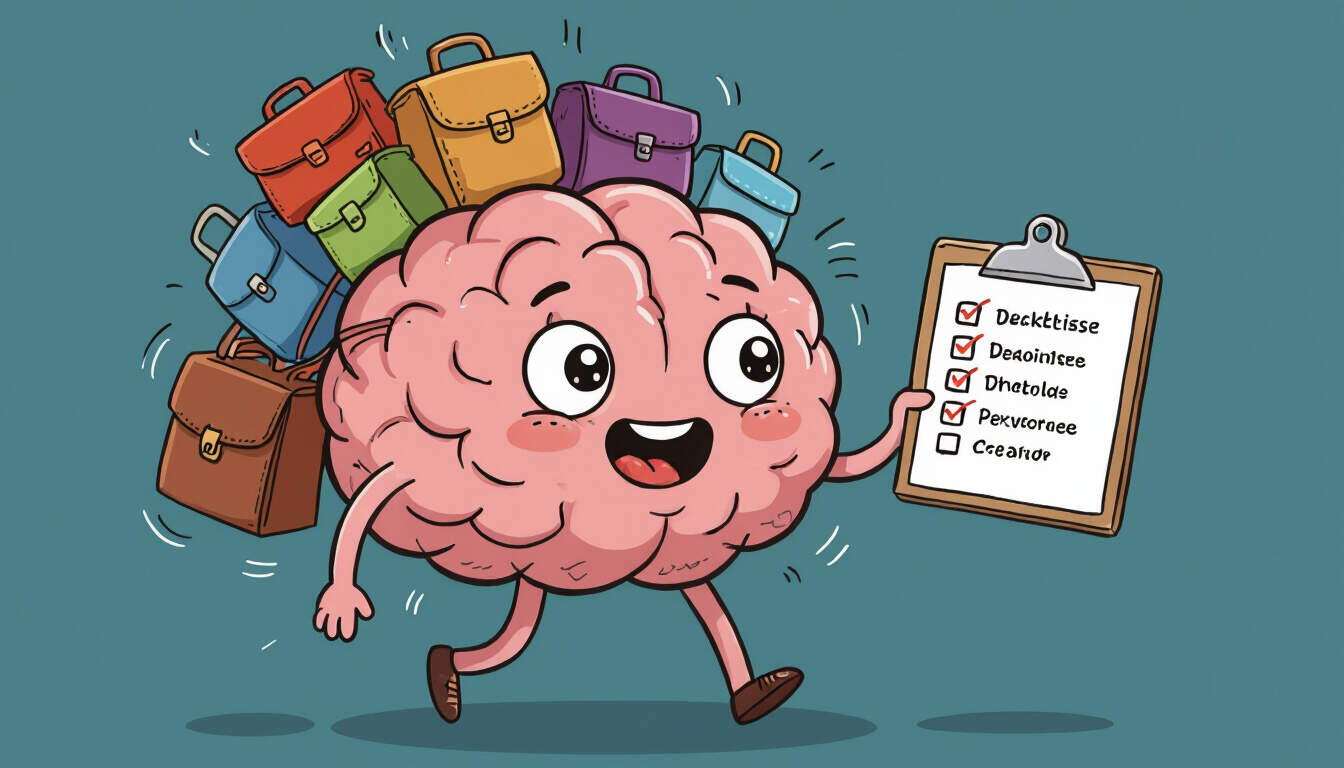How Packing Lists Can Help Offload Cognitive Load
 by Shanie Goodwin
by Shanie Goodwin
Discover practical ways to use packing lists for reducing mental overload in daily routines. This approach helps students and professionals manage tasks more effectively, leading to improved focus and productivity.

In our busy lives, managing too many thoughts at once can feel overwhelming. Cognitive load refers to the amount of mental effort used in working memory. By using tools like packing lists, individuals can ease this burden and free up space for more important tasks.
Packing lists serve as a simple yet effective method to externalize information. For instance, when preparing for a trip, a packing list allows you to jot down essentials without keeping them in mind constantly. This practice helps reduce the strain on working memory, making daily activities smoother.
One key advantage of packing lists is their ability to organize thoughts. packing lists can be created for various scenarios, such as travel or work preparations. They prevent forgetting items and minimize stress. For students, this means listing out study materials before exams, which keeps the mind clear for learning.
Consider a professional facing a deadline. Without a plan, they might juggle multiple details mentally. By writing a packing list for project needs, they offload that cognitive weight. This strategy not only saves time but also enhances overall efficiency.
To get started, begin with basic steps. First, identify areas where mental overload occurs most. For example, in daily routines like morning preparations, a packing list for toiletries and clothes can streamline the process.
Creating Effective Packing Lists
When making a packing list, keep it straightforward. Start by categorizing items into groups such as clothing, electronics, and documents. This structure makes the list easier to follow and reduces the need for constant mental scanning.
For students, packing lists can extend to academic life. A backpack checklist might include books, notebooks, and pens. Using this tool regularly helps build habits that lessen cognitive demands over time.
Professionals can adapt packing lists for meetings or business trips. For instance, listing agenda points and required materials ensures nothing is overlooked. This approach allows for better focus during the event itself.
Beyond packing, the principle of offloading can apply elsewhere. Keeping a to-do list is another way to manage tasks. By transferring thoughts to paper or digital notes, you create space in your mind for creative thinking.
Practical Tips for Everyday Use
Here are some actionable suggestions:
- Use apps or notebooks to maintain lists that are easily accessible.
- Review and update lists periodically to keep them relevant.
- Combine packing lists with calendars for a comprehensive overview.
For those interested in cognitive science, understanding how offloading works can be fascinating. It involves shifting information from short-term memory to external aids, which is crucial for productivity enhancement.
In educational settings, teachers can encourage students to use packing lists for assignments. This not only aids individual learning but also promotes better classroom management.
At work, teams might share packing lists for projects, fostering collaboration and reducing group overload. cognitive load decreases when responsibilities are clearly outlined.
Over time, relying on these tools can lead to lasting benefits. People often report feeling less anxious and more in control. For example, a student using a packing list for exam day might arrive prepared and confident.
It's important to experiment with different formats. Some prefer digital tools for their searchability, while others like the simplicity of pen and paper. The goal is to find what works best for you.
In conclusion, incorporating packing lists into daily life is a straightforward way to manage mental demands. By doing so, students, professionals, and others can enjoy a more balanced and productive existence.
